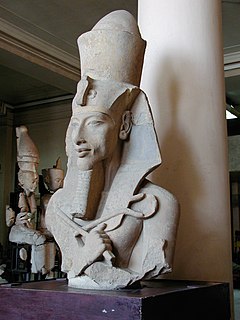A Quote by Lucius Annaeus Seneca
Behold a worthy sight, to which the God, turning his attention to his own work, may direct his gaze. Behold an equal thing, worthy of a God, a brave man matched in conflict with evil fortune.
Related Quotes
We have seen that the Son of God created the world for this very end, to communicate Himself in an image of His own excellency. ... When we behold the light and brightness of the sun, the golden edges of an evening cloud, or the beauteous (rain)bow, we behold the adumbrations of His glory and goodness; and in the blue sky, of his mildness and gentleness.
A person who is obsessed with Jesus knows that the best thing he can do is be faithful to his Savior in every aspect of his life, continually saying "Thank You!" to God. An obsessed person knows there can never be intimacy if he is always trying to pay God back or work hard enough to be worthy. He revels in his role as a child and friend of God.
The universe shows us the life of God, or rather it is in itself the life of God. We behold in it his permanent action, the scene upon which his power is exercised, and in which all his attributes are reflected. God is not out of the universe any more than the universe is out of God. God is the principle, the universe is the consequence, but a necessary consequence, without which the principle would be inert, unfruitful, impossible to conceive.
Whatever man may stand, whatever he may do, to whatever he may apply his hand - in agriculture, in commerce, and in industry, or his mind, in the world of art, and science - he is, in whatsoever it may be, constantly standing before the face of God. He is employed in the service of his God. He has strictly to obey his God. And above all, he has to aim at the glory of his God.
If you put something fragrant on to burning coals, you motivate those who approach to come back again and to stay near, but if instead you put on something with an unpleasant, oppressive smell, you repel them and drive them away. It is the same with the mind. If your attention is occupied with what is holy, you make yourself worthy of being visited by God, since this is the sweet savour which God catches scent of. On the other hand, if you nurture evil, foul and earthly thoughts within you, you remove yourself from God's supervision and unfortunately make yourself worthy of His aversion.
By His gracious condescension God became man and is called man for the sake of man and by exchanging His condition for ours revealed the power that elevates man to God through his love for God and brings God down to man because of His love for man. By this blessed inversion, man is made God by divinization and God is made man by hominization. For the Word of God and God wills always and in all things to accomplish the mystery of His embodiment.
On the ground of our own goodness we cannot expect to have our prayers answered. But Jesus is worthy, and for His sake we may have our prayers answered. There is nothing too choice, too costly, or too great for God to give Him. He is worthy. He is the spotless, holy Child, who under all circumstances acted according to the mind of God. And if we trust in Him, if we hide in Him, if we put Him forward and ourselves in the background, depend on Him and plead His name, we may expect to have our prayers answered.
A priest is a man vowed, trained, and consecrated, a man belonging to a special corps, and necessarily with an intense esprit de corps. He has given up his life to his temple and his god. This is a very excellent thing for the internal vigour of his own priesthood, his own temple. He lives and dies for the honour of his particular god. But in the next town or village is another temple with another god. It is his constant preoccupation to keep his people from that god. Religious cults and priesthoods are sectarian by nature; they will convert, they will overcome, but they will never coalesce.
It is not unreasonable to assume that the works of God, their existence and preceding non-existence, are the result of His wisdom, but we are unable to understand many of the ways of His Wisdom in His works. On this principle the whole Law of Moses is based; it begins with this principle: "And God saw all that He had made, and behold, it was very good" (Gen. i. 31); and it ends with this principle: "The Rock, perfect is His work" (Deut. xxxii. 4). Note it.
Strange is the vigour in a brave man's soul. The strength of his spirit and his irresistible power, the greatness of his heart and the height of his condition, his mighty confidence and contempt of danger, his true security and repose in himself, his liberty to dare and do what he pleaseth, his alacrity in the midst of fears, his invincible temper, are advantages which make him master of fortune.
Perfection consists in one thing alone, which is doing the will of God. For, according to Our Lord's words, it suffices for perfection to deny self, to take up the cross and to follow Him. Now who denies himself and takes up his cross and follows Christ better than he who seeks not to do his own will, but always that of God? Behold, now, how little is needed to become as Saint? Nothing more than to acquire the habit of willing, on every occasion, what God wills.












































